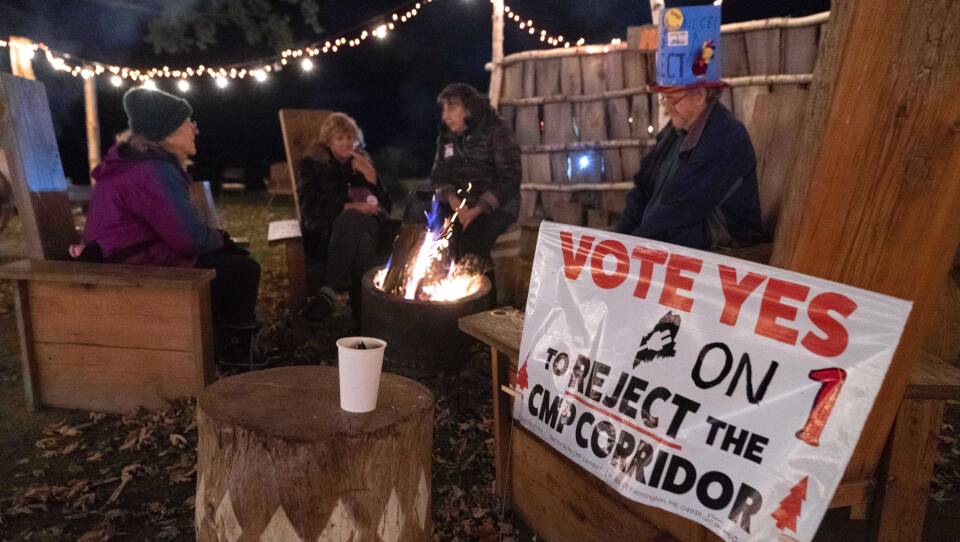In 2020, Chloe Maxmin became the youngest woman to serve in Maine's state senate when she unseated the Senate minority leader. The unabashed progressive ran a deep grassroots campaign — knocking on the doors of Republican and independent voters in the district — to build what she called "a mini social movement."
She joined Boston Public Radio on Thursday with her campaign manager from that election Canyon Woodward to discuss how they think the Democratic Party can learn from their experiences, which they've also examined in their new book " Dirt Road Revival: How to Rebuild Rural Politics and Why Our Future Depends On It. "
"The ways that the Democrats especially at the national level have kind of left behind, and withdrawn from rural spaces, has created a political voting block that is really swinging our country to the right," Maxmin said.
Maxmin and Woodward argue the Democratic Party can overcome some of the challenges they face in today's fractured political climate if candidates focus less on policy while campaigning, and more on values.
"We look at elections as like a job interview, where we're putting our white pages forward and our best credentials, and that's not what connects with people," Woodward said. "What connects with people is personal stories, human face-to-face interactions and uncovering our common values through those. And we're not putting our best foot forward when we just lead with hitting people over the head with policy and white papers."
Woodward said the Democratic Party needs to do a better job at making "really explicit that poor, white, rural Americans are part of this class struggle as well, that they are part of our party," through messaging, investment and grassroots organizing.
Maxmin and Woodward met at Harvard, where they both coordinated the movement to pressure the college to divest from fossil fuels. Maxmin said she took lessons from progressive organizing and brought it to her election campaign style.
"What if our campaigns looked a little bit more like a mini social movement in rural Maine where we were building relationships with folks, bringing them into the movement, doing work in the off-cycle and really making it something that was year-round instead of just a few months out of every even year," she said.
But is the practice actually scaleable in a way that can combat the creeping authoritarianism now associated with conservative politics, especially in states with more diversity than Maine? Maxmin acknowledged she wasn't sure.
"We're two white young campaigners in a very very white state, and a lot of rural America is not white, that is definitely part of our experience," she said. "How do you dismantle the narrative that Fox News has brought into our political world, even in a fifteen minute conversation, which is long in campaign time, I don't know how to do it ... What I've tried to do is just to say, just try and push a little bit on the narratives, so that it's not so competitive, and not so divisive."








